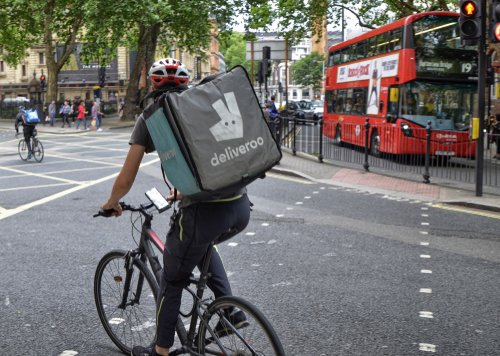Brussels (Brussels Morning)The socialist transport union BTB is appealing the judgement of the French-speaking labour court on the self-employed status of the couriers of meal delivery platform Deliveroo. Earlier, the Brussels labour prosecutor also announced that it would appeal.
The BTB, together with several bicycle couriers, joined the lawsuit against Deliveroo. They say that the couriers are bogus self-employed people who are actually employees of the platform and that they must therefore get an employment contract. The labour prosecutor was on the same page in his plea.
But in a judgement dated December 8, the labour court did not follow that position. He argued that there is no reason to reclassify the relationship between self-employed deliverers and Deliveroo as an employment contract.
ALSO READ: Deliveroo appeal against a decision of the Labour Relations Committee is without object
‘No subordinate relationship’
The court pointed out, among other things, that the couriers have the freedom to organise their work themselves, because they can, for example, refuse deliveries, and that the investigation did not show that there was a subordinate relationship. The court did see an economic dependence of the couriers on Deliveroo, but that would not stand in the way of independence.
Last week, the labour prosecutor had already announced that it would appeal against the verdict. The BTB and its member bicycle couriers are now also following. They say the court missed the mark. “Despite the negative ruling, it remains clear to BTB and the couriers: Deliveroo works with bogus self-employed. The company’s couriers are anything but free,” the union said on Tuesday.
For example, the couriers are “controlled, controlled and sanctioned by the Deliveroo algorithm,” points out BTB chairman Frank Moreels in a report by BRUZZ. “Among other things, they cannot set their own pricing and their invoices are drawn up monthly by Deliveroo itself.” According to Moreels, the BTB will “continue to fight for the correct status of bicycle couriers and the associated wage and working conditions.”




